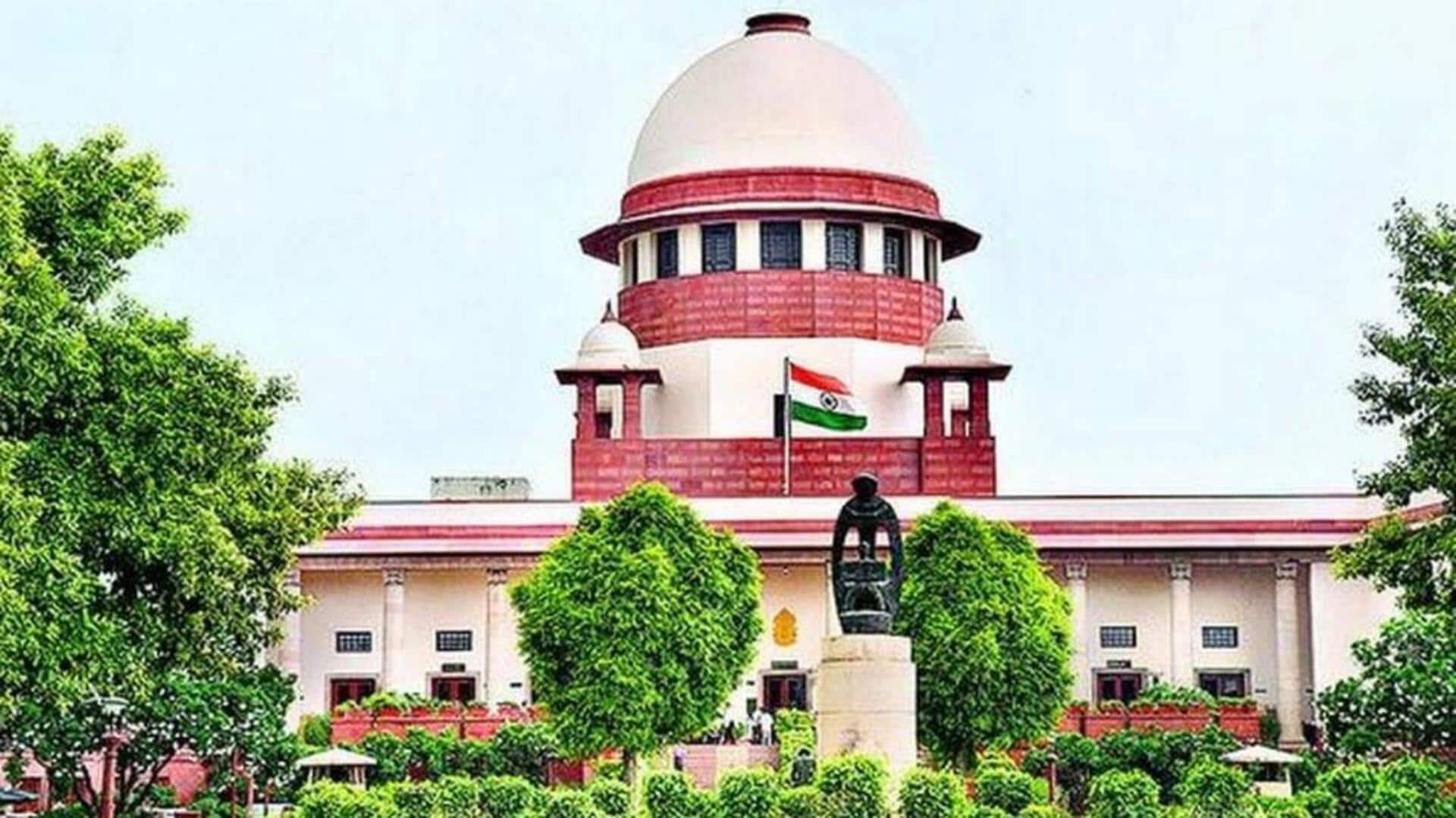
SC reconstitutes bench to hear petitions against ED's powers
What's the story
The Supreme Court of India has reconstituted a three-judge bench to decide if its 2022 decision needs reconsideration, which upheld the Enforcement Directorate's (ED) powers under the Prevention of Money Laundering Act (PMLA). The new bench, consisting of Justice Surya Kant, Justice Ujjal Bhuyan, and Justice N. Kotiswar Singh, will hear a batch of petitions against this verdict. The matter will be heard on May 7.
Bench transition
Previous bench and upcoming proceedings
The case was earlier being heard by a three-judge panel including Justice Kant, Justice Bhuyan, and Justice CT Ravikumar. But the latter had retired on January 5. However, when the case was mentioned before a two-judge bench on March 6, Justice Kant told the lawyers it had been listed incorrectly and assured a new three-judge panel would soon take it up.
Previous ruling
Supreme Court's 2022 ruling on ED's powers
In July 2022, the SC upheld the ED's powers to arrest and attach properties related to money laundering; conduct searches and seizures under the PMLA. The court observed that money laundering was a serious danger to a nation's financial system. The top court also supported some provisions of the PMLA, stressing it was not an ordinary crime.
Procedural clarification
ECIR and FIR distinctions clarified by SC
The SC clarified that authorities under the 2002 law were "not police officers as such" and an Enforcement Case Information Report (ECIR) couldn't be equated with a First Information Report (FIR) under the Code of Criminal Procedure (CrPC). It ruled that providing an ECIR copy in every case to the person concerned wasn't mandatory. It was enough for the ED to disclose grounds for arrest at arrest.
Controversy
Opposition claims PMLA is used to target political rivals
The SC's verdict came on a set of more than 200 petitions by individuals and other bodies challenging different provisions of the PMLA. The opposition regularly claims the government uses it as a weapon to target its political rivals. Section 45 of the PMLA, concerning cognizable and non-bailable offenses, is reasonable, the top court said, adding it doesn't suffer from arbitrariness or unreasonableness.